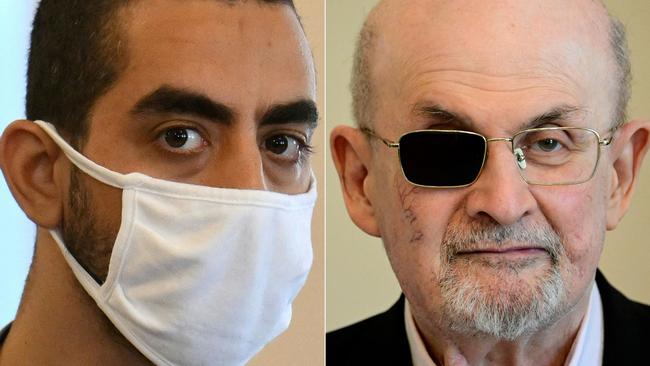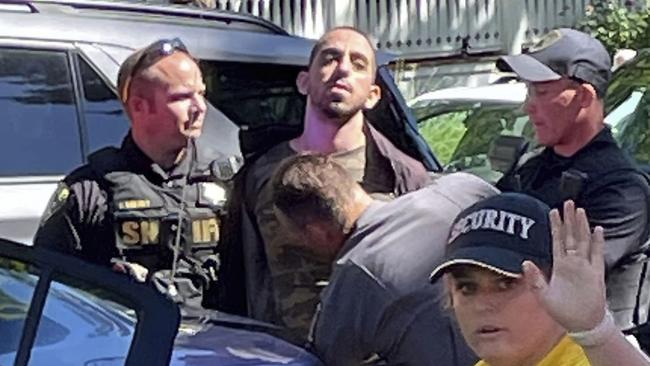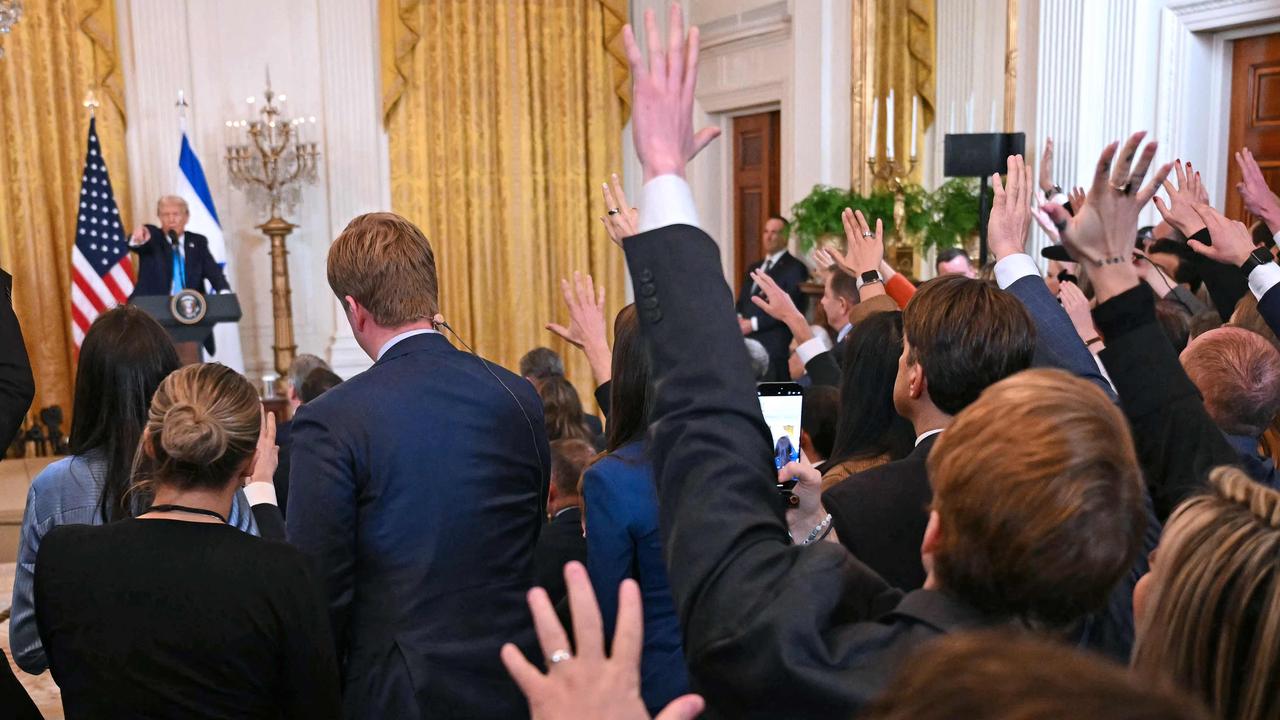Horror and humour as Salman Rushdie tells of day he almost died
With a mix of humour and graphic detail, Salman Rushdie told a jury about the frenzied moments in August 2022 when he thought he was about to die.

With a mix of humour and graphic detail, Salman Rushdie calmly told a jury about the frenzied moments in August 2022 when a masked man rushed at him on a stage in western New York and repeatedly slashed him with a knife, leaving him with terrible injuries.
“It occurred to me that I was dying. That was my predominant thought,” the author said.
Just a short drive from where the attack at the Chautauqua Institution occurred, Rushdie took the stand during the second day of testimony at the trial of Hadi Matar, 27, who has pleaded not guilty to attempted murder and assault in the attack, which also wounded another man.
It was the first time since the stabbing that the 77-year-old writer had found himself in the same room as Mr Matar, whom Rushdie refused to even name when he looked back on the day in his 2023 memoir, Knife. The book called him “the A”, as in assassin, or assailant or asinine.
Rushdie on occasion looked to his right, where the defendant sat 6m away, but showed no sign of recognition. Mr Matar, with lawyers on either side, rarely raised his head while Rushdie spoke.
Rushdie testified that he got just a brief look at the man who rushed across the stage and stabbed him repeatedly with a 25cm blade.
Rushdie said he first thought his attacker was striking him with a fist. “But I saw a large quantity of blood pouring onto my clothes,” he said. “He was hitting me repeatedly. Hitting and slashing.”
The testimony came just ahead of the 36th anniversary of the day – February 14, 1989 – that Rushdie has ruefully referred to as the worst possible Valentine’s Day, when Iranian leader Ayatollah Ruhollah Khomeini issued a fatwa calling for his death because of the supposed blasphemy in his novel The Satanic Verses.
Rushdie spent years in hiding. But after Iran announced that it would not enforce the decree, he had traveled freely over the past quarter-century, and security lightened to the point where his Chautauqua talk was announced months in advance.
Several police cars were in front of the courthouse on Tuesday morning, and security was also present on the rooftop of the jail across the street.
Mr Matar is a dual Lebanese-US citizen, born in the US to immigrants from Yaroun in Hezbollah-dominated southern Lebanon near the Israeli border, according to the village’s mayor. In a jail interview with the New York Post, he called Rushdie someone “who attacked Islam”.
On the trial’s first day on Monday, Mr Mahar calmly said “free Palestine” while being led into the courtroom. On Tuesday he said in a dull chant, “From the river to the sea, Palestine will be free.”

Rushdie, dressed in a plain, dark suit, spoke in an even, mild tone, even when recounting how he lay in a “lake” of blood. He briefly bared to the jurors his now-blinded right eye, usually hidden behind a darkened eyeglass lens.
Born in India, raised in Britain and now a US citizen, Rushdie is a Booker Prize-winning author who has been famous worldwide since Midnight’s Children was published more than 40 years ago. He has long been known for his eloquence, candour and wit that can surface in unexpected moments.
Under direct examination Rushdie spoke of undergoing painful surgery to seal the lid of his blinded eye. He turned to the jurors, and joked, “I don’t recommend it.”
Under cross-examination from public defender Lynn Schaffer, who challenged his memories of the attack, he acknowledged that it was hard to say precisely how many times he was stabbed: “I wasn’t counting at the time. I was otherwise occupied.”
Rushdie spent 17 days at a Pennsylvania hospital and more than three weeks at a New York City rehabilitation centre, where he relearned basic skills.
He detailed his months of recovery in Knife.
“I think I’m not quite at 100 per cent. I think I’ve substantially recovered, but it’s probably 75 per cent to 80 per cent,” Rushdie testified. “I’m not as energetic as I used to be. I’m not as physically strong as I used to be.”
Rushdie’s wife, Rachel Eliza Griffiths, sat in the second row in the courtroom. In 2022 she took an emergency private flight to be at his side after being told he was unlikely to survive. She cried at times, fanning herself and gripping the hand of a friend. As Rushdie left the room after his testimony, she smiled warmly at him and clasped her hands across her chest.
AP


